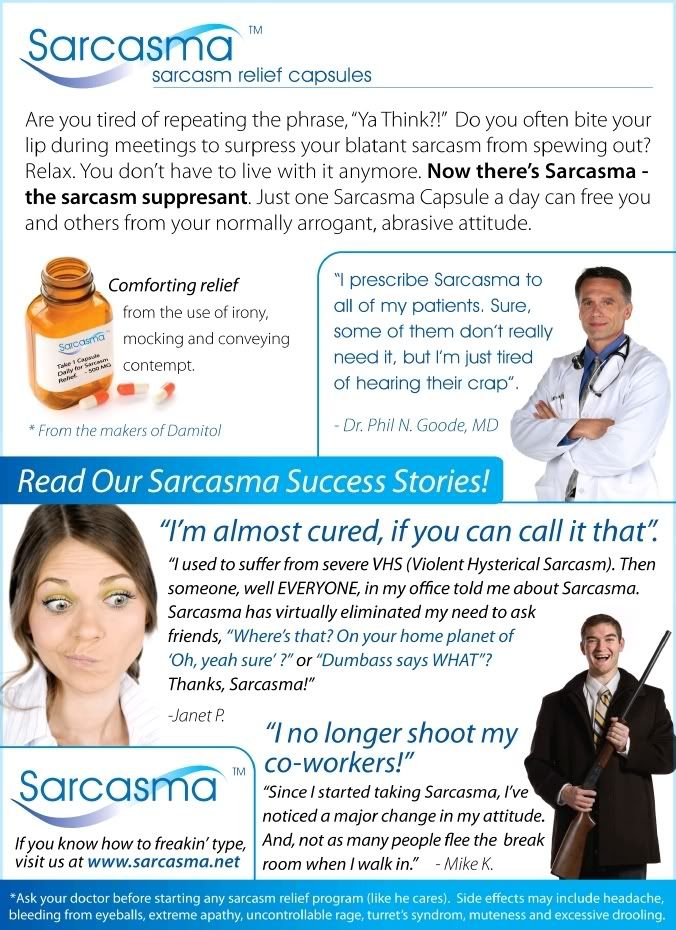I don't even get the point - i assume you see the ad, get taken in, then go rough up your doctor to give you them. Surely that completely defeats the point of prescription?
The ads are often remarkably effective, esp. in areas like psychiatry.
The thing is, while there's a lot of evidence supporting certain
classes of drugs in treating certain conditions in population studies, when it comes down to the individual, if doctor & patient opt to go down the medication route, there's often a period of trial & error to find the particular drug that works best for that individual patient.
There's often very little way of knowing in advance which drug will work best for the person sitting in front of you, so you usually pick based on your own experience as a prescriber (see, I use the term sometimes!) and based on the kinds of side effects each drug can cause. If the patient knows about different drugs already, then they can help with the decision-making process, which will improve concordance rates (how likely they are to stay on a med) and probably also increase the placebo component of any subsequent improvement (all drugs have a placebo effect as well as their actual effect). It can also build a stronger therapeutic alliance, which may facilitate other forms of therapy in the future and reduce relapse rates. So education about pharmacology is a big part of the job. Far worse in my opinion is when patients take a drug simply because their doctor advises them too. I much prefer patients who educate themselves about their condition, because I believe it will reduce their dependency on a magical cure and return some sense of control about their destiny to themselves (again, a big component of long-term recovery in my experience).
Drug ads are very much a double-edged sword in this regard, similar to the internet or to advice they're received from friends, family & fellow sufferers. It's good in that it gives them a raw level of familiarity with the topic and you can have a conversation. But there's often a strong component of "unteaching" them the wrong things they've learned from these sources.
On balance, I don't mind pharma ads, but not every doctor has the kind of time to actually discuss therapeutic options (or dare I say it, the inclination or ability) that a shrink does in this regard.
Oh, and while there's no major TV advertising of prescription meds in the UK, the pharma companies have lots of marketing routes to the general public, from websites, through funding some ofthe information leaflets that sit in GP practices, etc, etc, etc. In an way, TV advertising at least brings it more out into the open!




